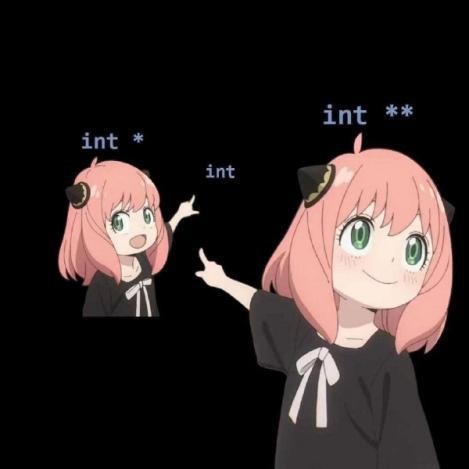

These long isekai titles always crack me up 🤣
Yoko, Shinobu ni, eto… 🤔
עַם יִשְׂרָאֵל חַי Slava Ukraini 🇺🇦 ❤️ 🇮🇱


These long isekai titles always crack me up 🤣


Absolutely happy that Mashle is back with a new season, it’s a god-tier anime that’s in-between One-Punch Man and Harry Potter. Obligatory hamstring magic OST: https://www.youtube.com/watch?v=81NvJRS8F0E


Spy x Family should be an obvious one


Post sources amd acreenshots for claims like these if you can
The receipts are here: https://lemmy.ca/post/6892121


I wouldn’t be upset over this, since the lemmy.ml admins’ moral compass is completely fucked up to begin with. For instance, they’re working with another tankie lead dev who literally called multiple times to murder Israeli civilians by saying stuff like “all Israeli civilians are valid targets”, “there are no civilians in Israel” or “anything that moves and isn’t Palestinian is a valid target” (not even paraphrasing here), and they’re talking about hiring him with the donations, meaning they implicitly condone what he said. People who called them out for being extremists were right.


Dead Mount Death Play is about a necromancer from a medieval fantasy world reincarnating in modern Japan, basically the reverse of your usual isekais, and it’s really good so far. Also, part 2 just dropped.


I also loved that Anya moment! Too bad this episode isn’t canon…


Only the theme is being changed: https://github.com/LemmyNet/joinlemmy-site/pull/243#issuecomment-1733895034


No, n³ cannot be O(n²) as otherwise that would mean that there exists a positive constant K and a positive threshold m such that for any integer n greater than m you would have n³ less than K*n², which would be the same as saying n less than K, which cannot hold for any integer n greater than m. So n³ cannot be an O(n²), which means that something that is an O(n³) is not necessarily an O(n²).
It’s the other way around, if something is an O(n²) then it is necessarily also an O(n³).
green is less stressful than red though


Nice! Though I still prefer the Anya version:

yeah so far it looks like Yayoi is the most wholesome character here if you ignore her op knowledge of the occult


Also pacman is the fastest package manager I’ve ever used.
I hope you enabled parallel downloads, that makes it fast as fuck.
I know the guy meant it as a joke but in my team I see the damage “academic” OOP/UML courses do to a programmer. In a library that’s supposed to be high-performance code in C++ and does stuff like solving certain PDEs and performing heavy Monte-Carlo simulations, the guys with OOP/UML background tend to abuse dynamic polymorphism (they put on a pikachu face when you show them that there’s also static polymorphism) and write a lot of bad code with lots of indirections and many of them aren’t aware of the fact that virtual functions and dynamic_cast’s have a price and an especially ugly one if you use them at every step of your iterative algorithm. They’re usually used to garbage collectors and when they switch to C++ they become paranoiac and abuse shared_ptr’s because it gives them peace of mind as the resource will be guaranteed to be freed when it’s not needed anymore and they don’t have to care about when that is the case, they obviously ignore that under the hood there are atomics when incrementing the ref counter (I removed the shared pointers of a dev who did this in our team and our code became twice as fast). Like the guy in the screenshot I certainly wouldn’t want to have someone in my team who was molded by Java and UML diagrams.


I’m not entirely sure what you mean by memory isolation here, but the basic idea is that if you have a pointer to something then you know where it is located in memory and you can write in it, that’s the whole idea of passing by address in C.
Now pointers themselves are merely variables. Yes they have a special meaning, they “point” to something and you can dereference them with the * operator, but at the end of the day they’re still variables. They have a physical existence in memory or CPU registers, and their content is simply the address to which you want to point. Once you accept this, then the idea of the address of a pointer (ie the location of the variable you’re calling “pointer”, and not the address it contains) is not strange anymore and you can perfectly have a pointer-to-pointer in order to, among other things, pass pointers by address.


pointer pointers
wait until you learn about template templates in C++
okay I’ll watch it just for the hilariously long title